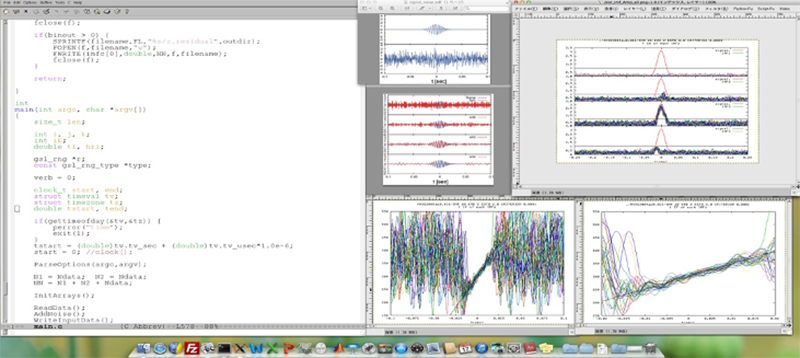Join us
For those who are interested in our group
As a new trend in university education, the term “liberal arts and sciences integration” is frequently mentioned. Observing society, we believe that most jobs can only be done properly if one is knowledgeable in both the humanities and sciences. In addition, as information technology and globalization advance, a balance between the two is increasingly required.
The Gravitational Wave Physics and Astronomy/Data Science Group (GW-DS Group) is dedicated to nurturing individuals who possess an understanding of the humanities extending beyond the boundaries of the sciences, as well as those who comprehend the sciences beyond the boundaries of the humanities. In essence, people who can see things scientifically from a broad perspective. In today’s world, a mathematical background is required in many fields, including statistics, quantitative analysis, social research, and marketing. The GW-DS Group also aims to provide students with knowledge and skills in information mathematics (mathematics, physics, computer skills, and others) necessary to play an active role in international research and business.
We focused on developing the following four skills in a balanced manner:
- Mathematical background,
- Communication skills,
- Logical thinking, and
- Advanced applications of information.
At Tokyo City University, students are typically assigned to a laboratory (group) in the second half of their third year of undergraduate studies (In the Department of Design and Data Science, students may be assigned to a laboratory (group) from the graduate school). If you are an motivated student eager to enhance these four skills, we warmly welcome you to join us in the Gravitational Wave Physics and Astronomy/Data Science (GW-DS Group).
Students within the Gravitational Wave Physics and Astronomy/Data Science Group (GW-DS Group) are strongly encouraged to pursue graduate studies.
We also welcome students from master’s and doctoral programs to join our group. If you are interested in participating, please visit our group.
For information on the research topics that we focus on in the Gravitational Wave Physics and Astronomy/Data Science Group (GW-DS Group), please refer to the Research Topics page. However, you are not limited to working on research topics within the GW-DS Group. Let us have fun and work together on your research interests.
Please note that education and research guidance in the Gravitational Wave Physics and Astronomy/Data Science Group (GW-DS Group) focuses on observational instruments and inertial sensors, machine learning, and data processing.
Instead, several models and methods have been incorporated into a single research topic. Therefore, we conduct our research by integrating individual physical models, machine learning models, and data processing methods, while sharing our findings with collaborators and students at each research institute. Some of the introduced physical models, machine–learning models, and data processing methods involve complex theories, whereas others apply more easily understood theories. In addition, the preprocessing of signals obtained from observational instruments and inertial sensors can be challenging for students to understand. In this series of studies, students are required to understand the following aspects: (a) handling methods of observation devices and inertial sensors, (b) data acquisition through observation and experiment, (c) signal processing techniques, (d) construction of automated classification models using physics and machine learning, (e) methods for evaluating the accuracy of the constructed models, and (f) implementation methods.
Based on my previous experience in education and research guidance, I aim to guide students in both education and research endeavors, taking into account the complexities inherent in constructing physical models, machine learning models, and data processing methods within these research topics. It is essential to foster a learning environment that allows students to accumulate successful experiences while assessing their abilities effectively.
Group introduction written by students
Catchphrase of the laboratory
- From a scientific point of view,
- Cultivate the logical thinking ability, and
- Motivation of research is extremely important.
A day in the group
In the Gravitational Wave Physics and Astronomy/Data Science Group (GW-DS Group), the students themselves set own research time. However, as a general rule, the students are expected to come to the office once a day.
Group members mainly focus on three topics: 1) Data analysis of gravitational waves utilizing various signal processing techniques, including machine learning. 2) Feature extraction from wearable sensors such as accelerometers and gyroscopes. This technique is widely used to understand human activities such as car driving, sports, healthcare assessments, and daily living activities. 3) Operations research and mathematical modeling of real-world problems.
Each student adopts a unique research style, with a significant portion of their time dedicated to activities such as programming, conducting numerical experiments (see Figure 5), and engaging in discussions with fellow lab members to enhance their understanding of fundamental research concepts. Additionally, many students balance their research commitments with part-time jobs and club activities and present their research findings at academic conferences and research meetings.





